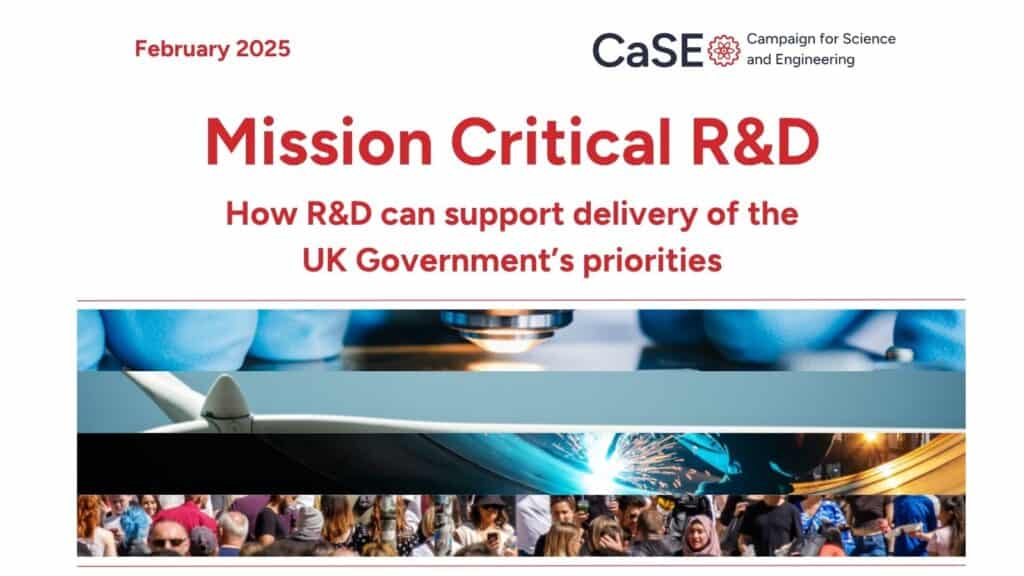UKRI
However, despite the broadly positive outlook for the overall R&D spending allocations, it is clear that the financial year ahead will be tight for UKRI, which will receive an approximately flat cash settlement of £8.8 bn in 2025/26, compared to £8.9 bn 2024/25 [1].
While UKRI has seen a cash terms increase in its budget in recent years, high inflation has eaten up much of this increase, with this year’s flat cash settlement representing a real terms budget cut. This will mean difficult decisions across UKRI on where to focus limited resources in the coming year.
In the October budget the Government stated that the DSIT allocation “includes at least £6.1 billion of support for core research [2], growing allocations at least in line with inflation”. Core research was not mentioned in the publication of the allocations last week, and on the information available it is difficult to identify which allocations have grown in line with inflation. In part this is because UKRI budgets of 2022/23 – 2024/25 and 2025/26 do not lend themselves to direct comparison as UKRI has decided to no longer use ‘over-profiling’ to help manage its budgets.
It is notable that the proportion of funding for UKRI has not been increasing in line with increases to overall Government spending on R&D. In 2018/19, £6.8 bn of the total £12.6 bn R&D spend went to UKRI (54%), whereas £8.8 bn of the total £20.4 bn R&D spending (43%) is going to UKRI this year. With UKRI being the main funder of discovery research in the UK, this change in the balance of public R&D funding could have implications for the fundamental research that underpins the UK’s R&D sector. CaSE will continue to scrutinise investment in R&D across government to ensure the most effective and balanced profile.
Notes
[1] Unlike previous years funding for the Faraday Battery Challenge and Zero Emission HGV programmes is not included in the 2025/26 budget allocated by DSIT to UKRI, as UKRI will receive funding for those programmes from the Department for Business and Trade and the Department for Transport respectively. This funding is of the order £120 m.
[2] Core research covers Research England, Research Councils, UKRI talent, UKRI international subscriptions and National Academies funding.




